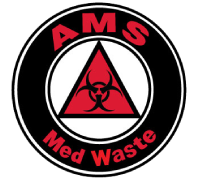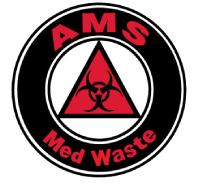Regulatory compliance in the healthcare sector is crucial, not only for maintaining the reputation and integrity of your hospital but also for ensuring the safety and well-being of your patients. Here, we discuss five best practices to promote regulatory compliance in your hospital.
1. Designate a Compliance Officer
One of the first steps in promoting regulatory compliance is to appoint a dedicated compliance officer. This individual should have a deep understanding of the healthcare laws, regulations, and standards that apply to your hospital. They should be responsible for developing, implementing, and overseeing an effective compliance program. Their role will involve monitoring compliance, identifying potential risk areas, and addressing violations promptly and effectively. A qualified compliance officer can help ensure your hospital meets all relevant legal obligations and adheres to industry best practices.
2. Establishing Clear and Accessible Compliance Policies and Procedures
Having clearly written policies and procedures is a cornerstone of effective regulatory compliance. These documents should outline your hospital’s approach to meeting its legal and ethical obligations, including how it will handle potential compliance issues. They should be easily accessible to all staff members and reviewed regularly to ensure they remain up-to-date with changes in laws and regulations. Additionally, your hospital should have a procedure in place for staff to report potential compliance issues without fear of retaliation.
3. Upholding Patient Privacy as a Compliance Priority
Patient privacy is a critical aspect of regulatory compliance in healthcare. Hospitals must comply with laws such as the Health Insurance Portability and Accountability Act (HIPAA), which protects the privacy and security of patient health information. Ensure that your hospital has robust data protection measures in place to prevent unauthorized access to patient information. Regular audits of your data security systems can help identify and address potential vulnerabilities.
4. Implementing Comprehensive Staff Education on Compliance
Staff education is essential in enhancing regulatory compliance within any healthcare setting. All staff must be fully aware of the hospital’s compliance policies and procedures, from doctors and nurses to administrative personnel. Regular training sessions reinforce understanding and adherence to these policies, ensuring everyone is aware of their obligations and the potential consequences of non-compliance. Education should cover general regulations and delve into specific legal requirements such as patient privacy and medical waste disposal. This comprehensive approach helps maintain a high standard of compliance across all facets of the healthcare environment.
In response to this critical need, some reputable medical waste management companies, like AMS MedWaste, provide services to assist your facility in adhering to all medical waste laws and regulations. These companies play a vital role in promoting regulatory compliance by equipping your staff with the knowledge and skills necessary to handle medical waste properly.
5. Highlighting the Importance of Medical Waste Compliance
Managing medical waste is a critical responsibility with notable environmental implications and legal mandates. Key regulatory bodies such as the Occupational Safety and Health Administration (OSHA) and the Environmental Protection Agency (EPA) have established guidelines for proper medical waste management.
OSHA primarily focuses on safeguarding workers by enforcing safety standards, including medical waste protocols. Meanwhile, the EPA’s regulations protect the environment, including stipulations regarding medical waste disposal to prevent pollution.
In conclusion, fostering regulatory compliance in your hospital encompasses dedicated leadership, clear policies and procedures, commitment to patient privacy, ongoing staff education, and stringent waste management practices. By adhering to OSHA and EPA guidelines, among other best practices, your hospital can operate within the law, safeguard patients, and uphold the highest care standards.
Embark On Your Compliance Journey with AMS MedWaste Today!
Promoting regulatory compliance in your healthcare facility is a complex yet crucial task. However, you don’t have to navigate this journey alone. At AMS MedWaste, we are here to provide exceptional service and value-based pricing for potentially infectious and hazardous medical waste disposal.
Why Choose AMS MedWaste?
Not only do we offer top-notch medical waste management services, but we also prioritize environmentally sound solutions. We take pride in our ability to avoid sending medical waste to landfills and instead convert it to fuel – a testament to our commitment to playing our part in environmental conservation. We understand that each healthcare facility has unique needs. Whether you operate a hospital, an emergency clinic, a dental office, a tattoo studio, a long-term care facility, a blood bank, or a funeral home, we can tailor our services to suit your specific requirements. Plus, we provide customer-responsive service and offer customer-friendly contracts.
Our goal goes beyond just managing your medical waste. We strive to educate our customers on best practices, ensuring patient and end-user safety while maintaining absolute dedication to customer satisfaction.
Contact AMS MedWaste Today!
Don’t let the complexities of medical waste management and regulatory compliance overwhelm you. With AMS MedWaste, you can focus on providing your patients the highest standards of care, while we handle the rest. Contact us today, and let’s work together towards a safer, healthier, and more compliant future for your healthcare facility.






